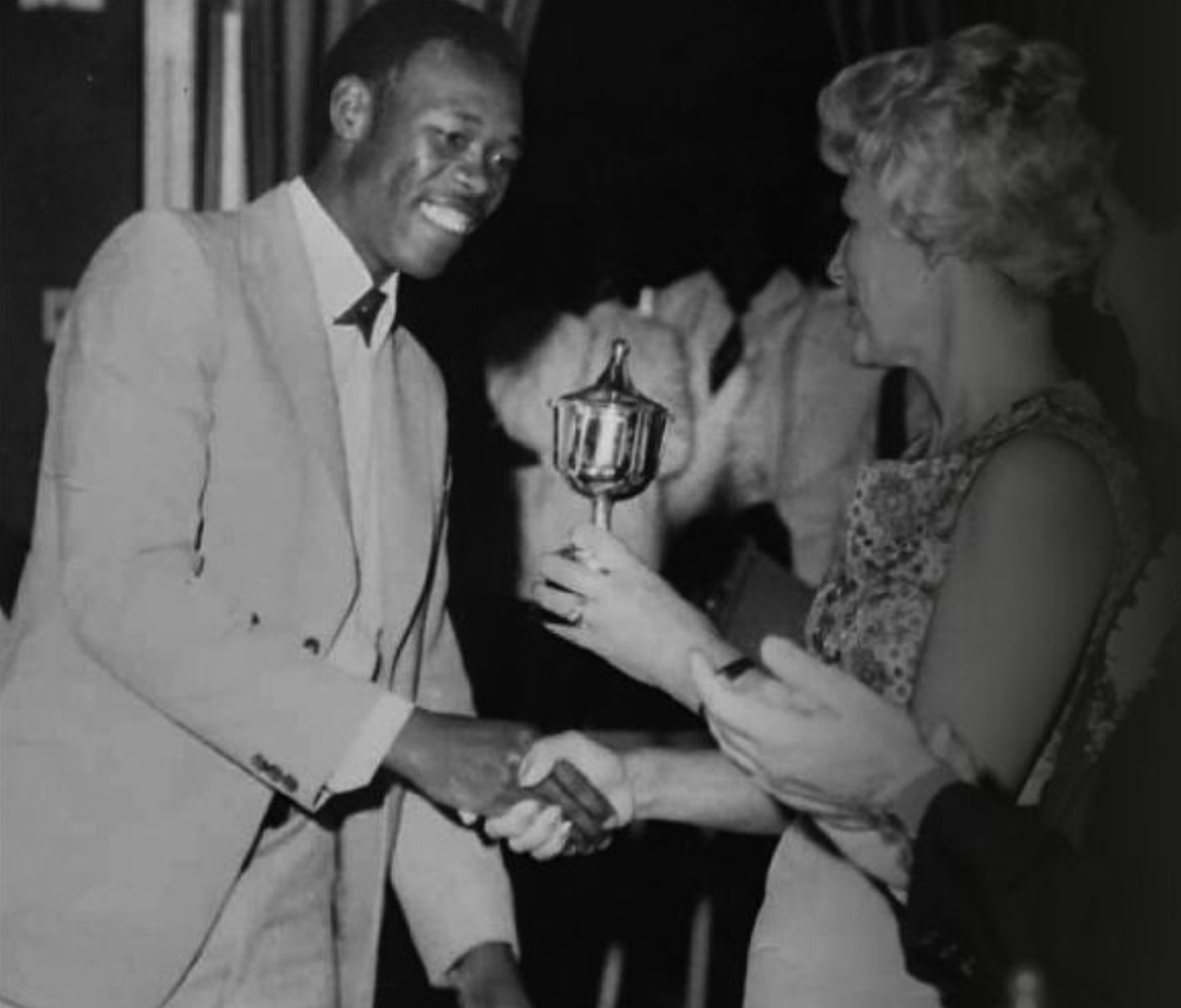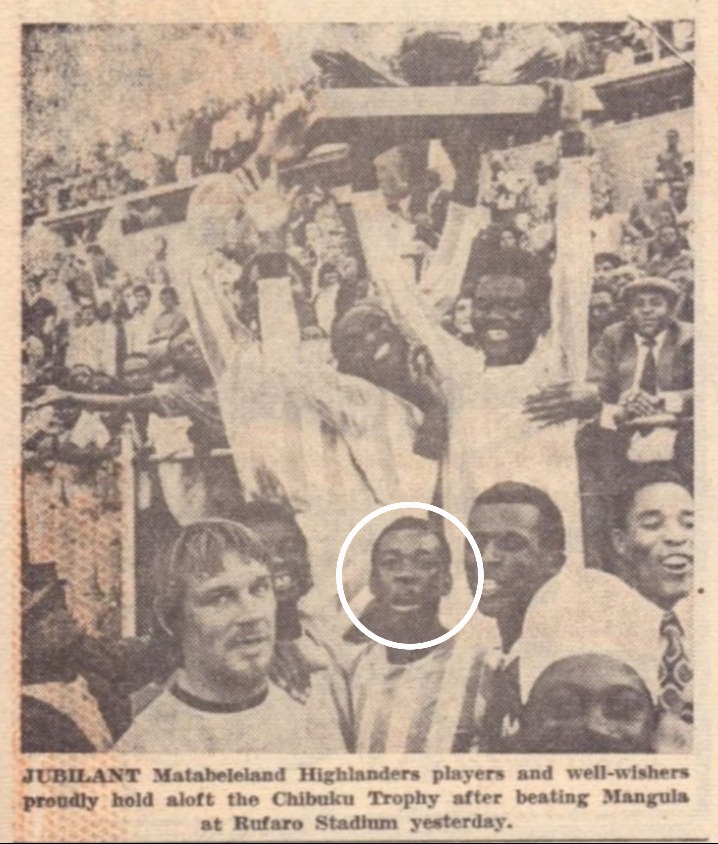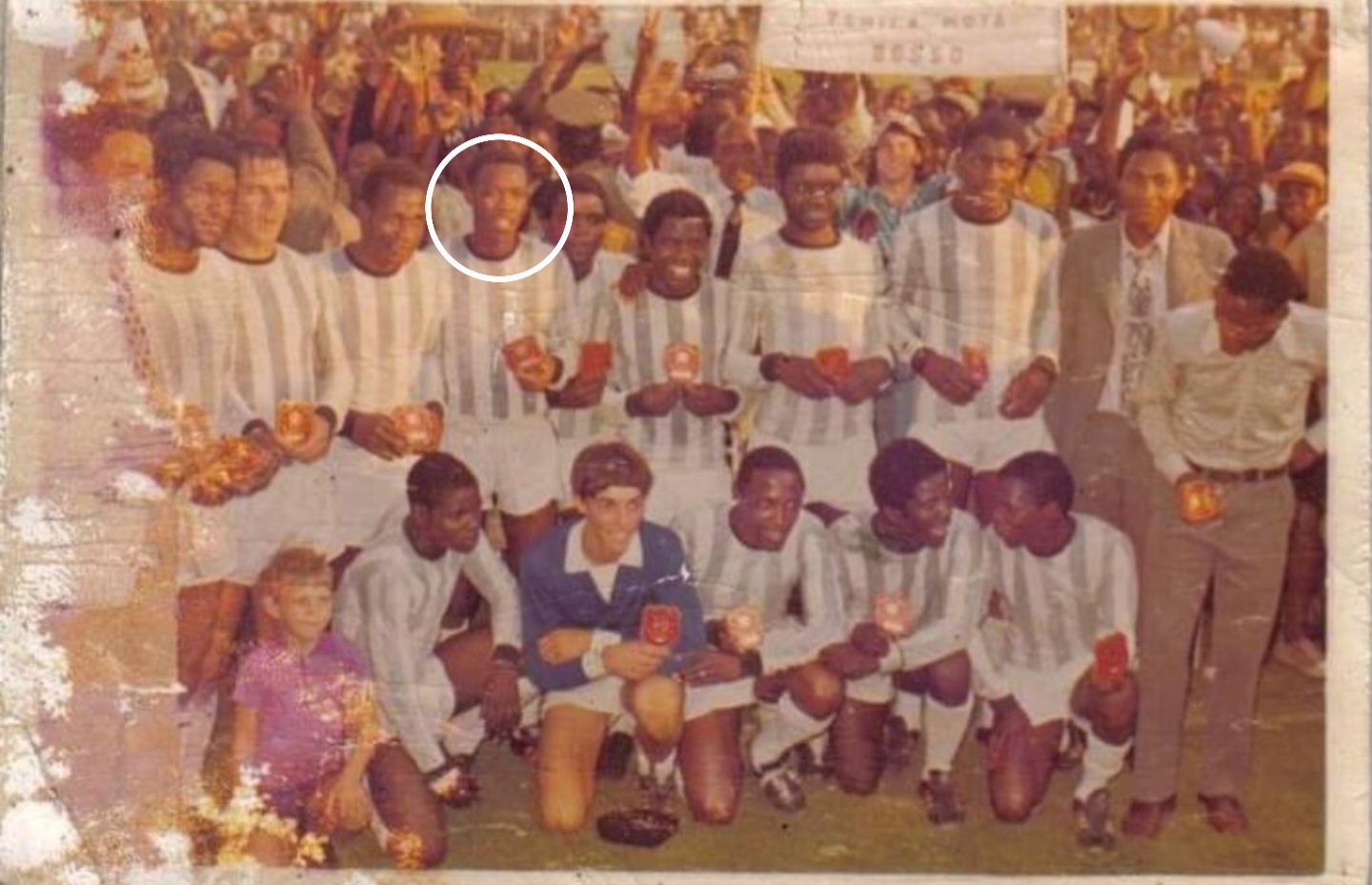The Legacy of
Tymon Mabaleka








Tymon Mabaleka was a prominent figure in Zimbabwe, renowned both as a footballer and a music producer. Born in 1950 in Nswazi, Umzingwane District, Mabaleka first made his mark in sports, playing for the Highlanders Football Club where he earned the nickname "The Whitehorse." His football career was notable, helping his team win their first major title, the Chibuku Trophy, in 1973.
After retiring from football in 1982, Mabaleka transitioned to a successful career in the music industry. He worked for Gallo Records, which later became part of the Zimbabwe Music Corporation, eventually merging with Gramma Records. Mabaleka was instrumental in the production of many well-known Zimbabwean musicians, including Lovemore Majaivana and Solomon Skuza. His influence extended through various musical hits and albums that shaped the local music scene.
Sadly, Tymon Mabaleka passed away on June 27, 2014, in Harare, Zimbabwe. His contributions to both sports and music have left a lasting legacy in the country.

From Football Glory to Musical Mastery: The Remarkable Journey of Tymon Mabaleka.
In the annals of Zimbabwean sports and music history, few figures command as much reverence and admiration as Tymon Mabaleka. A name synonymous with both football brilliance and musical genius, Mabaleka's life journey embodies the spirit of versatility and excellence.
Born with an innate talent for the beautiful game, Mabaleka's rise to prominence began on the football fields of Zimbabwe. As a midfield virtuoso, he possessed a rare blend of skill, vision, and tenacity that left fans in awe. From 1973 to 1983, he graced the hallowed turf wearing the colors of Highlanders Football Club, where his contributions were instrumental in propelling the club to unprecedented heights of success. With every flick, pass, and goal, Mabaleka etched his name into the hearts of supporters, earning adulation as one of the club's most revered players.
Mabaleka's talents transcended domestic boundaries, as evidenced by his inclusion in the Zimbabwe National Team from 1980 to 1981. Donning the national colors, he showcased his prowess on the international stage, forming formidable partnerships with iconic players like Bruce Grobbelaar, the legendary goalkeeper who made his mark with Liverpool FC. Together, they represented the pinnacle of Zimbabwean football, inspiring generations of aspiring athletes with their on-field exploits.
However, Mabaleka's journey took an unexpected turn upon retiring from the football pitch. Rather than resting on his laurels, he embarked on a new chapter, venturing into the realm of music with the same passion and determination that defined his sporting career. Transitioning from athlete to artist, Mabaleka found his calling as a music producer, where his keen ear for talent and intuitive understanding of rhythm propelled him to the forefront of Zimbabwe's music industry.
In his new role, Mabaleka's impact was nothing short of transformative. He nurtured and mentored a generation of artists, shaping their sound and guiding them to unprecedented levels of success. With his Midas touch, he produced a string of chart-topping hits that captivated audiences nationwide, earning accolades and accolades for both himself and the artists under his tutelage. His productions not only dominated the airwaves but also translated into record-breaking sales figures, with thousands of units sold and numerous artists achieving gold and platinum status.
Mabaleka's journey from football icon to musical luminary is a testament to the power of talent, passion, and perseverance. Through his indomitable spirit and unwavering dedication, he has left an indelible mark on Zimbabwean culture, inspiring countless individuals to pursue their dreams with courage and conviction. As both a sporting legend and a musical maestro, Tymon Mabaleka's legacy will continue to resonate for generations to come, a shining example of what is possible when talent meets opportunity and determination knows no bounds.

Tymon Mabaleka epitomized brilliance on the football pitch, captivating fans with his mesmerizing skills as a midfield maestro. From 1973 to 1983, he adorned the jersey of Highlanders Football Club, playing a pivotal role in the team's triumphs and helping elevate the club to unprecedented success. His talent wasn't confined to the domestic stage; he also donned the Zimbabwe National team jersey from 1980 to 1981, showcasing his prowess alongside legendary players like Bruce Grobbelaar, the former Liverpool FC goalkeeper. Following an illustrious football career, Mabaleka seamlessly transitioned into the music industry, where he carved out a reputation as one of the country's finest and most sought-after music producers. With a keen ear for talent and an innate understanding of rhythm and melody, he propelled numerous artists to stardom, orchestrating a plethora of chart-topping hits that resonated with audiences nationwide. His unparalleled dedication and unparalleled production skills not only earned him widespread acclaim but also paved the way for gold and platinum accolades, solidifying his status as a trailblazer in Zimbabwean music history.

Tymon Mabaleka's arrival at Highlanders F.C. in 1973 marked a seismic shift in the team's dynamics. Hailing from Eastlands, his addition injected a potent blend of skill and determination into the squad. When 'Matabeleland Highlanders' squared off against the formidable 'Mangula' in the race for the prestigious Chibuku Trophy, Mabaleka's influence was undeniable. Despite being the underdogs, Highlanders stunned their opponents with a resounding 3-0 victory, with Mabaleka's sensational 20-meter strike igniting the crowd. Alongside the prolific Josiah Nxumalo who scored the other two goals, Mabaleka's pivotal contributions helped secure the club's first major silverware, cementing his legacy as a Highlanders legend.



Tymon Mabaleka, affectionately known as "The Whitehorse," was not only a celebrated athlete but also one of Zimbabwe's most influential music producers. His transition from the football field to the recording studio marked the beginning of an illustrious second career that profoundly impacted Zimbabwe's music scene.

After hanging up his boots in 1982, Tymon Mabaleka embarked on a new journey in the music industry, a field where his passion and keen ear for talent would soon make him a household name. He joined Gallo Records, which later became a part of the Zimbabwe Music Corporation and eventually merged with Gramma Records. It was here that Mabaleka's creative vision found its true calling.
Mabaleka was instrumental in shaping the careers of some of Zimbabwe's most beloved musicians. He is often compared to Quincy Jones for his ability to discover and nurture talent. Under his guidance, artists such as Lovemore Majaivana, Solomon Skuza, and John Chibadura produced music that resonated deeply with the Zimbabwean populace, blending traditional rhythms with modern sounds to create timeless hits.
One of Mabaleka's most notable proteges was Lovemore Majaivana. Mabaleka produced several of Majaivana's albums, which are celebrated for their lyrical depth and musical richness. Songs like "Stimela" and "Salanini Zinini" are just a few examples of the hit tracks that emerged from this collaboration, leaving an indelible mark on the local music landscape.
Tymon played a pivotal role in shaping the careers of numerous musicians, helping them achieve unprecedented success in record sales, with many attaining gold or platinum status. His portfolio of collaborators reads like a who's who of Zimbabwean music history, including Fortune Muparutsa, Lovemore Majaivana, Oliver Mutukudzi, John Chibadura, Isaac Chirwa, Leonard Zhakata, IIanga, Marshall Munhumumwe, James Chimombe, Andy Brown, and countless others. Tymon's ability to seamlessly transition from one career to another, while achieving excellence in both, is a testament to his boundless talent, creativity, and passion. He remains a treasured legend in Zimbabwean culture, celebrated for his contributions to both sports and music, and remembered fondly for his Midas touch that turned songs into something truly magical.

Tymon Mabaleka's studio became a crucible for musical innovation. He was known for his meticulous production style, ensuring that each track met his high standards. His work with Solomon Skuza, another iconic musician, on the album "Love and Scandals" exemplifies Mabaleka's knack for producing chart-topping hits that were both culturally poignant and immensely popular.
Mabaleka's commitment to quality and his deep understanding of music allowed him to craft songs that were not only commercially successful but also culturally significant. His productions often reflected the social and political atmosphere of Zimbabwe, giving voice to the hopes, fears, and aspirations of its people.
Though Tymon Mabaleka passed away in 2014, his influence on Zimbabwe's music industry continues to be felt today. He was a pioneer who not only brought Zimbabwean music to the forefront but also inspired a new generation of artists and producers. His legacy is a tapestry of sound and emotion that continues to inspire and entertain, ensuring that his contributions to the music world will be remembered and cherished for generations to come.
Through his remarkable journey from the football pitch to the music studio, Tymon Mabaleka remains a towering figure in Zimbabwean culture, remembered not only for the music he made but for the lives he touched along the way.
Tymon Mabaleka exemplified unwavering faith and a profound connection to God, complemented by his profound dedication as a Music Conductor and Chorister. Within the Seventh Day Adventist Church, where he worshipped, he tirelessly cultivated harmonious choirs through his unmatched discipline and work ethic in choral worship music and praise songs. Many of the choirs he nurtured and coached achieved remarkable success, earning invitations to perform at prestigious presidential state events. Under Tymon's guidance, even the most ordinary church members blossomed into skilled and harmonious singers. His passion for singing and teaching choral music using staff notation was infectious, leaving an indelible mark on all who had the privilege of learning from him. Tymon's unwavering dedication to his faith in God endured until his passing in June of 2014, leaving behind a legacy of spiritual devotion and musical excellence.
